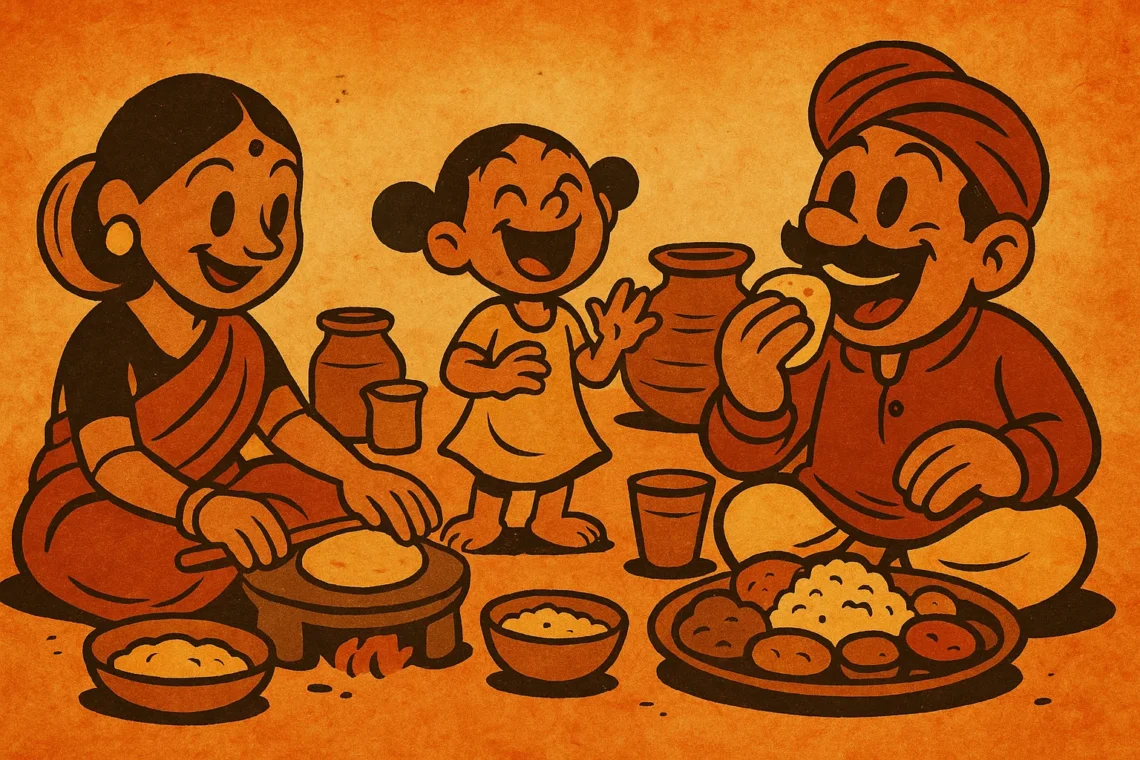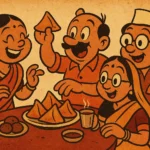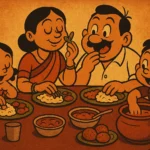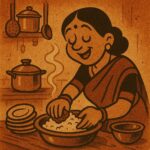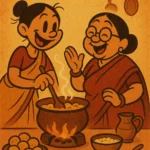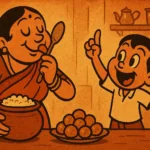The rule was never written down. It wasn’t even announced. But in our house, the moment the first roti landed on the plate — fresh off the tawa, puffed like a belly full of secrets — there was silence. Not dramatic silence. Not the kind you notice. Just a natural, reverent pause, as if everyone instinctively knew: this bite matters more than most. No jokes. No TV. No chatter. Just the first roti and you.
It’s only now, years later, that I realize how sacred that moment was. As a child, I thought it was about hunger — the relief of warmth after a long day, the ghee melting into hot wheat like butter into memory. But it was more than that. It was a form of mindfulness, long before we had a word for it. A kind of stillness wrapped in the soft folds of home-cooked dough.
The Weight of That First Bite
The first roti wasn’t just the first food. It was a kind of offering — to the day, to the cook, to your own body. In most Indian homes, it’s the simplest thing on the plate. No elaborate stuffing, no golden crust, no garnishes. But it was always served first. And the way we ate it — with butter, or jaggery, or just plain dal — revealed how much it meant.
My grandmother believed that the first roti set the tone. “If it’s soft,” she said, “the rest of the meal will be peaceful.” If it tore too easily or didn’t puff, someone would fuss over the dough or blame the humidity. But once it arrived — steaming, perfect — it demanded focus. One bite at a time, slowly, without distraction.
The Cook Watches Silently
In our house, the person making the rotis never ate with us right away. They stood by the stove, flipping, watching. Not because they weren’t invited — but because they were still offering. And the first roti was their moment of feedback. They watched how we broke it, what we reached for — ghee or curry, jaggery or sabzi — and they read our faces. A small nod, a satisfied sigh, even silence with closed eyes — all counted as praise.
My mother, especially, could interpret those tiny reactions better than any words. If I chewed too long, she knew the dough was too tight. If I finished it too quickly, she’d smile and say, “That good, huh?” And still, we didn’t talk until it was done. It felt rude, almost blasphemous, to interrupt the warmth settling inside you with something as clumsy as conversation.
Why It Still Matters
These days, my meals are often solo. Reheated leftovers between emails. Wraps eaten while walking. Noise everywhere — podcasts, notifications, thoughts stacked like tiffins in my brain. But once in a while, I make rotis from scratch. I knead the dough with both hands, roll it into uneven circles, and stand at the stove flipping them, one by one. And when that first one lands on the plate, I sit down. I don’t scroll. I don’t speak. I take a bite. And I remember.
Because in that moment, I’m not alone. I’m back at the family table. I’m tasting the first warmth of the meal. I’m part of a quiet, unwritten tradition — where the first roti doesn’t ask you to say anything. It just asks you to feel everything.
A Silence That Feeds
Not all silences are empty. Some are full — of gratitude, hunger, care. The silence during the first roti was never about rules. It was about presence. About honoring the hands that cooked, the body that receives, the day that led up to this exact bite.
So if you ever sit at a table where the first roti is served hot and fresh, don’t rush to speak. Just eat. Let the ghee melt. Let your shoulders drop. Let the quiet do the talking.
Born in Mumbai, now stir-frying feelings in Texas. Writes about food, memory, and the messy magic in between — mostly to stay hungry, sometimes just to stay sane.

